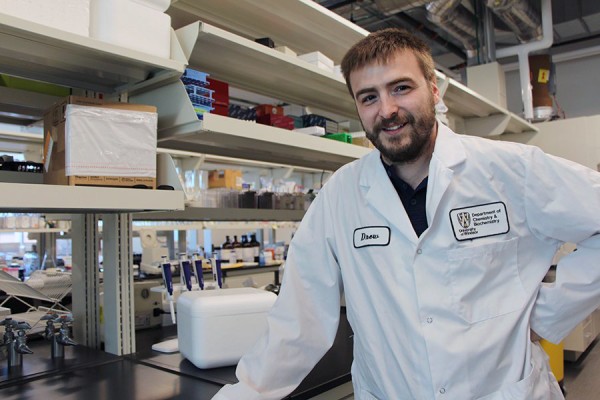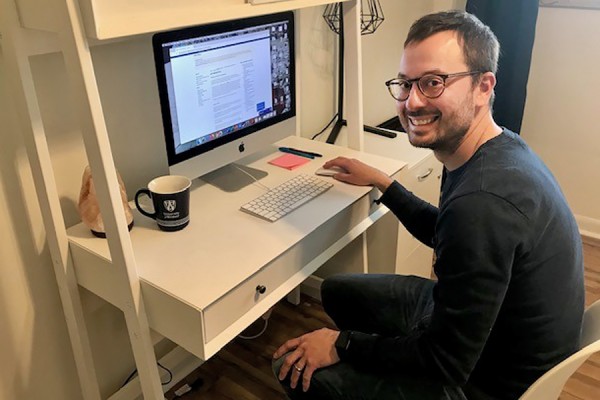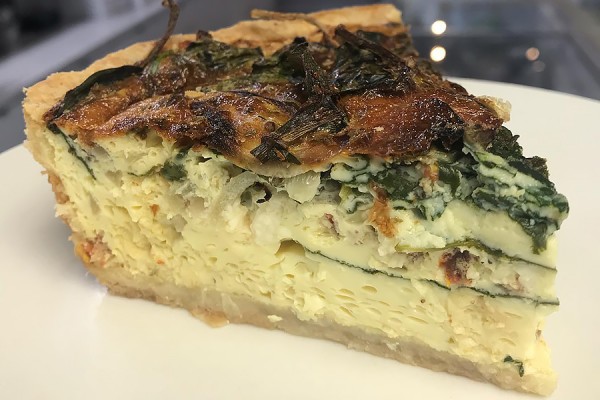 Drew Marquardt, together with fellow UWindsor researchers James Gauld and Charu Chandrasekera, is exploring how an ingredient in vapes and e-cigarettes poses complications for those infected with the virus that causes COVID-19.
Drew Marquardt, together with fellow UWindsor researchers James Gauld and Charu Chandrasekera, is exploring how an ingredient in vapes and e-cigarettes poses complications for those infected with the virus that causes COVID-19.
Does vaping and smoking e-cigarettes put you at higher risk of COVID-19 complications?
UWindsor’s Drew Marquardt is trying to answer that question with research into how the toxicants in the oils of vapes and e-cigarettes affect lung function.
“What we’re trying to find out is how does this connect to complications if you catch COVID-19,” Dr. Marquardt said.
It’s believed there is a link between vitamin E acetate — a modified form of vitamin E found in vaping oils and e-cigarettes — and the lung injury found in people who use those products. A recent article in the New England Journal of Medicine focusses on the presence of vitamin E acetate in the lungs of people with EVALI, short for electronic-cigarette/vaping-associated lung injury.
With the help of fellow UWindsor chemist James Gauld and researcher Charu Chandrasekera, head of the Canadian Centre for Alternatives to Animal Methods, Marquardt will study how vitamin E acetate interacts with the pulmonary surfactant — the liquid lining the alveoli in the lungs. He will develop models and send samples to a national laboratory in Oak Ridge, Tennessee where scientists will test the surface tension of the pulmonary surfactant using small-angle neutron scattering.
“We want to find out how the vitamin E acetate disrupts the mechanical properties of the pulmonary surfactant in the model system,” Marquardt said. Using a 3D-bioprinted human lung tissue model, the team will then determine how lung injury induced by vitamin E acetate influences the virus that causes COVID-19.
EVALI is a new condition, identified in the past year, Marquardt explained. COVID-19 is even newer, with the nexus of the two conditions yet to be explored.
What is known is that 78 per cent of people with lung injury due to vaping and e-cigarettes are younger than 35. This is the age demographic expected to least likely suffer complications from COVID-19.
Marquardt suspects healthcare workers are too overburdened to look into the factors behind complications in patients in this age group.
“I don’t know how deeply the hospitals are able to delve into this,” he said. “You’ve got a disease that the world was not prepared for.”
Oak Ridge National Laboratory has selected Marquardt’s project for study under its current program offering rapid remote access to its instruments for COVID-19 research.
His research project has received funding through the University of Windsor’s Office of Research and Innovation and the WE-Spark Health Institute, a research partnership involving the University of Windsor, Windsor Regional Hospital, Hotel-Dieu Grace Healthcare, and St. Clair College. It is one of 21 local COVID-related research projects WE-Spark has financially supported through its COVID-19 Rapid Response grant program.
—Sarah Sacheli




